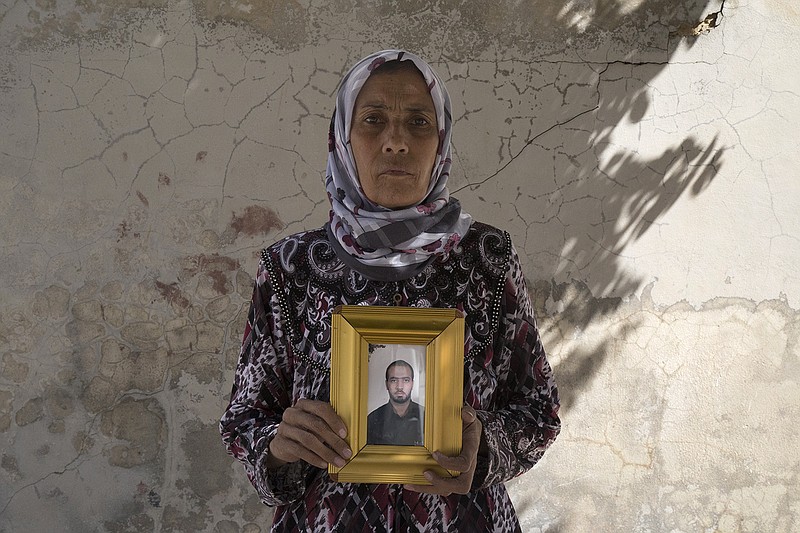BEIRUT (AP) - Improvised land mines planted by the Islamic State group have killed and wounded hundreds of civilians, including dozens of children, in a town recently freed of the militants in northern Syria, a leading human rights group said Wednesday.
Civilians returning to the town of Manbij since it was liberated from the extremists in August have reported finding explosive devices placed in doorways and windows, under mattresses and piles of shoes, in refrigerators and bags of clothes and in television sets, Human Rights Watch said in a report based on a five-day investigation in the town.
"ISIS mined virtually everything including, quite literally, the kitchen sink before they left," said Ole Solvang, deputy emergencies director at Human Rights Watch, using an alternative acronym for the Islamic State group.
He said the number of victims is likely to increase as more people return to their homes.
The Islamic State group has typically laid out hundreds of land mines and booby traps designed to kill civilians before retreating from towns and cities across areas in Iraq, including the cities of Ramadi and Fallujah, and also in the town of Kobani in Syria.
Manbij, near the Turkish border, was liberated by a U.S.-backed coalition of Kurdish, Arab and other forces in mid-August. The town had been under IS militants' control since January 2014.
The report's findings are a grim portent for Iraq's IS-held city, Mosul, where a large-scale offensive is underway, posing a major threat to civilians there and other IS-held towns including al-Bab and Raqqa in Syria.
HRW said it collected the names of 69 civilians killed - including 19 children - by improvised mines in schools, homes and on roads in Manbij during its five-day investigation this month. It said the victims were killed during and after the fighting for control of the town.
The total death toll is likely much higher, the New York-based watchdog said, because it was unable to collect information from all neighborhoods and villages.
HRW said IS had also planted mines on roads, bridges, and in the fields, which wounded and killed civilians trying to flee from the militants during the fighting. It also mined schools and hospitals, according to local residents and bomb disposal workers.
